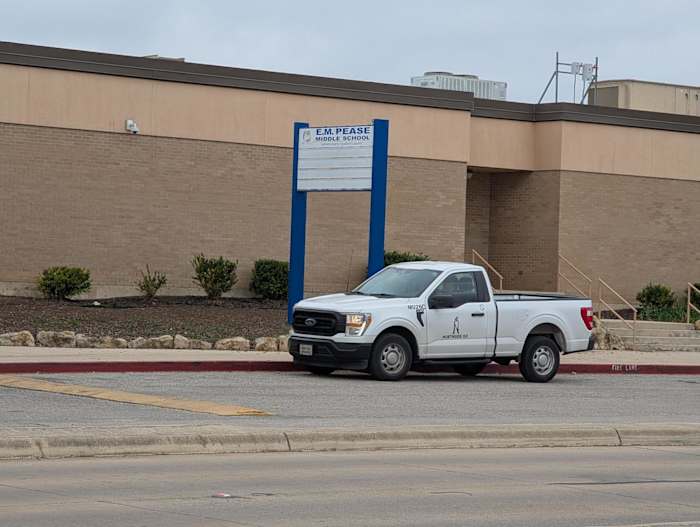A Georgia mother is suing Tennessee officials, alleging her five children were unlawfully taken from her after a routine traffic stop, in a case that questions the integrity of legal procedures. The lawsuit claims that authorities acted without a valid court order, leading to the children being placed in foster care for 55 days.
Tennessee officials accused of illegally taking kids after traffic stop
Key Takeaways:
- Bianca Clayborne alleges her children were taken without a valid court order.
- The family’s children were placed in foster care for 55 days following a traffic stop.
- Less than five grams of marijuana were found; charges against Clayborne were dismissed.
- Officials allegedly created a false paper trail and destroyed evidence.
- The case raises concerns about potential racial bias in the treatment of the family.
A Mother’s Legal Battle After Traffic Stop Leads to Child Removal
The Traffic Stop Incident
In February 2023, Bianca Clayborne, her partner Deonte Williams, and their five children were traveling from their home in Atlanta to Chicago for a funeral. Their journey took an unexpected turn when a Tennessee Highway Patrol officer pulled them over in Coffee County. The reasons cited for the stop were tinted windows and a “slowpoke” violation, according to the incident report.
Claiming to detect the smell of marijuana, troopers conducted a search of the family’s car. They discovered less than five grams of marijuana—a quantity that typically results in a simple citation in Tennessee.
Arrests and Immediate Aftermath
Despite the minor amount found, officers arrested Williams after he admitted possession of the marijuana. Clayborne, who denied any usage, was cited but not arrested. Authorities then requested that she follow them to the Coffee County jail to bail out Williams, a suggestion that would soon escalate the situation dramatically.
Forcible Removal of the Children
While waiting in the jailhouse parking lot, Clayborne was confronted by social workers from the Tennessee Department of Children’s Services (DCS). In a shocking turn of events, her five children—ranging from a seven-year-old to a four-month-old breastfeeding baby—were forcibly taken from her custody. County sheriff deputies had placed spike strips around her car to prevent her departure, an action the lawsuit describes as “an illegal exercise of police power.”
The children were placed in foster care, where they remained for 55 days. “These public officials illegally tore apart and terrorized Clayborne’s family,” the lawsuit asserts. “They acted outrageously and unlawfully. Their actions caused severe emotional trauma to Clayborne and each of her five children.”
Legal Allegations and Lawsuit Claims
Clayborne’s lawsuit alleges that DCS workers acted without obtaining the necessary court order required for emergency removal of children. Tennessee law mandates that DCS file a sworn petition detailing evidence of abuse or neglect, followed by a written order from a juvenile judge before separating children from their parents.
Instead, a DCS caseworker who had no direct contact with Clayborne or her children reportedly made a phone call to Coffee County General Sessions Judge Greg Perry. Separate communications between county officials and Judge Perry also occurred, wherein they discussed the possibility of removing the children.
According to recordings obtained by Clayborne’s attorneys, when Coffee County Sheriff Investigator James Sherrill expressed concern about legal repercussions—saying “If we get in the middle of this, there’s going to be a damn lawsuit”—Judge Perry responded, “You won’t get in a lawsuit… because I’ve got judicial immunity.”
The lawsuit contends that officials failed to follow proper legal procedures and that they later attempted to “paper over the record” by obscuring time stamps and submitting legal documents after the fact. Additionally, it alleges that a DCS attorney engaged in private communications with Judge Perry to discuss the situation, violating standard court rules.
Questions of Racial Bias
The incident drew widespread attention and sparked conversations about potential racial bias, as the family is Black. Advocacy groups, including Tennessee Democrats and the Tennessee Conference of the NAACP, demanded the return of the children. The case highlighted concerns about whether the family received disparate treatment because of their race.
Responses from Officials and Legal Proceedings
A spokesperson for the Tennessee Attorney General’s office, representing DCS caseworkers and troopers named in the lawsuit, did not provide a comment. Attorneys for Coffee County argued that the new claims are barred by a statute of limitations but also did not respond to requests for comment.
Williams later pled guilty to a single simple possession charge, while the charge against Clayborne was dismissed. U.S. District Judge Clifton Corker has yet to rule on whether the new claims in the lawsuit may proceed. However, in August, he ruled that DCS caseworkers could be held liable for their actions, including violations of the family’s Fourth Amendment rights and claims of false arrest and imprisonment.
Conclusion
Bianca Clayborne and her family are represented by prominent Nashville civil rights attorneys Abby Rubenfeld, Tricia Herzfeld, and Anthony Orlandi. As the legal battle unfolds, the case continues to raise important questions about the conduct of child welfare agencies, the legal processes surrounding child removal, and the protection of constitutional rights. The outcome may have significant implications for how such cases are handled in the future.











